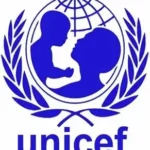Director of Programs-USAID Global Health Social and Behavior Change (SBC) at World Vision | April 2024
Job Description
With over 70 years of experience, our focus is on helping the most vulnerable children overcome poverty and experience fullness of life. We help children of all backgrounds, even in the most dangerous places, inspired by our Christian faith.
Come join our 33,000+ staff working in nearly 100 countries and share the joy of transforming vulnerable children’s life stories!
Key Responsibilities:
World Vision is seeking a Director of Programs for the anticipated USAID-funded Global Health Social and Behavior Change (GH-SBC) Activity. The five-year, multi-country GH-SBC Activity seeks to implement theory-informed, evidence-based, locally led social and behavior change (SBC) programming. Key focus areas include family planning and reproductive health (FP/RH); malaria; and maternal, newborn, and child health (MNCH), with attention to emerging pandemic threats and other infectious diseases. While focused primarily on health, the project may address SBC needs in other sectors, with particular attention to areas of potential complementarity such as environmental conservation, agriculture, food security, and nutrition. Final target geographies will be selected after award; however, countries may include Angola, Bangladesh, Burundi, Cambodia, DR, DRC, Eswatini, Ethiopia, Ghana, Haiti, Indonesia, Kenya, Lesotho, Malawi, Mali, Mauritania, Mozambique, Nepal, Niger, Philippines, Rwanda, Senegal, Sierra Leone, South Africa, South Sudan, Tanzania, Uganda, Ukraine, Vietnam, Zambia, and/or Zimbabwe. This is a global, multi-country subaward.
The Director of Programs is responsible for providing overall strategic technical leadership, oversight, and coordination for subaward activities and staff. S/he will possess deep, applied experience in SBC and building the capacity of local partners. S/he will have demonstrated abilities in leadership, strategic thinking, development of effective teams, and change management. S/he must also have a demonstrated ability to collaborate effectively and efficiently with host country agencies, including central and local governments, development partners, civil society, and community-based organizations.
Recruitment is contingent upon successful award of the project. Local candidates residing in the program’s priority countries are encouraged to apply. Selection of the final applicant is subject to USAID approval. The estimated program start date is September 2024. Position may potentially be based in one of the following countries: Kenya, Ethiopia, Uganda, Sierra Leone, South Sudan, Tanzania, Mauritania, Mali, Senegal, Burkina Faso, Rwanda, Niger, or Democratic Republic of Congo.
Manage proactive and responsive relationship with prime grantee and USAID, in close collaboration with supported countries.
Work closely with Project Director and project team to guide the technical and operational direction of GH-SBC’s local partner capacity development program. Provide strategic and technical leadership and direction, defining and implementing activities to achieve the greatest impact toward project goals and objectives. Establish standard operating procedures (SOPs), including tools and templates, to guide effective and efficient, and compliant program administration.
Establish systems for local partner capacity needs assessments, preparation of capacity strengthening action plan, and implementation and monitoring of the capacity development plan.
Lead and oversee local partner capacity assessments for local implementing partners’ staff to identify organizational development priority areas.
Design and oversee strategic planning and technical assistance in capacity building necessary to ensure best practices and methodologies are introduced among partner organizations and stakeholders.
Work with the project team to develop, introduce, adopt, or update appropriate local partner capacity building training modules and methodologies, including innovative and diverse SBC approaches, per partner organizational needs.
Upon the execution of field mission buy-ins, oversee appropriate level of technical assistance.
Be fully conversant on global evidence-based practices on local engagement, capacity building, and local sustainability.
Liaise with local government officials, local communities, donor representatives and other stakeholders as appropriate.
Establish internal managerial, reporting, and knowledge management systems.
Consistently look for more effective and efficient implementation methods and opportunities to increase impact.
Collaborate with USAID, prime awardee, implementing partners, government counterparts and other stakeholders to ensure programming aligns with best practices and to share lessons learned.
Establish clear and frequent communication regarding program progress and oversight management with the prime awardee and consortium partners.
Keep Christ central in individual and corporate life. Actively participate in and contribute to the spiritual disciplines of the organization (Christian conduct, devotions, chapel, prayer, worship); incorporate WV Core Values into decisions within scope of role. Provide spiritual leadership to the team.
Knowledge/Qualifications:
At least ten (10) years’ experience in global public health programming, including at least seven (7) years’ experience in senior-level management positions and experience leading large (>$10 million dollars life of award budget) and complex (at least two health and development technical areas) projects with a strong SBC focus.
A master’s degree or higher in international development, public health, behavioral science, or a related field.
Program leadership and implementation experience for USAID-funded programs is required, including interacting with overseas mission offices.
Has a proven record of leadership in the design and management of SBC programs in low- and middle-income countries (LMICs), including experience leading projects across a range of health technical areas.
Has proven ability to effectively engage partners, manage and collaborate with a multi-partner consortium, and develop the capacity of local partners.
Proven ability to network and build collaborative relationships with diverse stakeholders, including donors, host-country governments, and local and international health and development implementers.
Brings strong technical expertise in health systems strengthening, FP/RH, malaria, MNCH, emerging pandemic threats, and/or other infectious diseases.
Applicant Types Accepted:
Local and International Applicants (IA’s) Accepted





